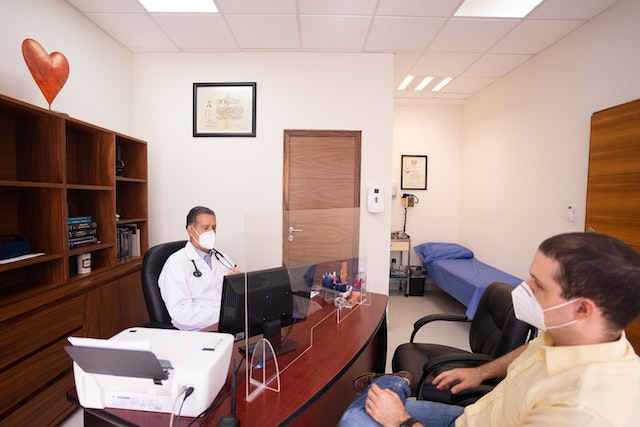The Great Lengths Clinics Go Through to Meet HIPAA Standards
The Health Insurance Portability and Accountability Act (HIPAA) was instituted to protect patient health information, ensuring it’s treated with the utmost confidentiality and respect. Compliance with HIPAA is non-negotiable, prompting clinics to adopt rigorous measures.
This article explores the extensive steps clinics undertake to align with these standards. So read on and find out more.
Incorporating Advanced Encryption Technologies
One of the most critical aspects of data protection for digital records is encryption. Clinics are now utilizing state-of-the-art encryption technologies to ensure that patient’s sensitive health information remains inaccessible to unauthorized individuals. Any data transferred across networks or stored in databases is transformed into a code, making it unreadable without the necessary decryption keys. Such measures are particularly vital in healthcare, where confidentiality and trust are paramount. By employing robust encryption, clinics reinforce their commitment to patient privacy, ensuring peace of mind for those entrusting them with their health details.
Regular Training and Workshops for Staff
Ignorance can result in unintentional non-compliance. Because of this, medical facilities put a significant amount of resources into conducting regular training sessions to ensure that every member of the staff is familiar with the nuances of HIPAA. This training is not limited to medical professionals such as physicians and nurses; non-medical staff members such as receptionists and janitors also go through this training, emphasizing collective responsibility. The likelihood of inadvertent security lapses is reduced at clinics when complete knowledge is promoted across the organization. This all-encompassing kind of training helps build a culture that values discretion and discretion, protecting both the clinic and its patients.
Implementing Strict Access Controls
Not every piece of patient information is pertinent to all healthcare providers. Hence, clinics have stringent access controls, ensuring employees can only access the information necessary for their roles. This means that, for instance, a general practitioner won’t have unbridled access to a patient’s psychiatric records unless explicitly required. By implementing role-based access, clinics maintain patient confidentiality and minimize the risk of inappropriate or accidental disclosure of sensitive data. This targeted approach to information accessibility not only safeguards patients but also bolsters the clinic’s overall data security infrastructure.
Auditing and Monitoring Systems
HIPAA compliance cannot be achieved without conducting regular audits. Clinics can guarantee that no unauthorized views or data breaches occur when they regularly monitor the users with access to each data. Any abnormalities found can have immediate action taken on them, which can provide insights into possible weaknesses inside the system. The significance of strictly following established procedures is driven home when those responsible for breaking the rules are made to answer for their actions. In addition, the ongoing evaluation and improvement of security measures helps clinics stay one step ahead of emerging dangers while ensuring that the highest possible levels of personal information are protected.
Physical Safeguards and Barrier Implementations
Even while HIPAA spends a significant portion of its attention on digital information, physical files are as important and susceptible to security breaches. As a result of this realization, medical facilities have enhanced the physical security of their storage areas by installing secured cabinets in areas to which only authorized personnel have access. These locations are under constant surveillance by surveillance cameras, which record any unlawful efforts to access the data. Also, alarm systems have been installed to notify the security staff of any possible breaches or illegal entry. When taken together, these precautions guarantee that paper copies of patient data are afforded the same level of strict security as their digital equivalents.
Collaboration with Compliant Vendors
In the healthcare domain, safeguarding patient information is paramount. One significant step clinics undertake to uphold this responsibility is ensuring they collaborate with compliant vendors. By choosing partners offering HIPAA compliant payment methods, clinics demonstrate their commitment to maintaining the integrity and confidentiality of patient data during transactions. This adherence aligns with regulatory standards and fosters trust among patients, knowing that their personal and medical information is handled with utmost care. Ultimately, such strategic collaborations underscore the clinic’s dedication to excellence in patient care and regulatory compliance.
Conclusion
The journey to HIPAA compliance is continuous, rigorous, and exhaustive. By focusing on both digital and physical safeguards, regular training, and stringent vetting processes, clinics signify their unwavering commitment to patient data privacy. Although sometimes challenging to implement, these measures underscore the medical sector’s dedication to upholding trust, ensuring patients’ most intimate details are treated with the sanctity they deserve.






























